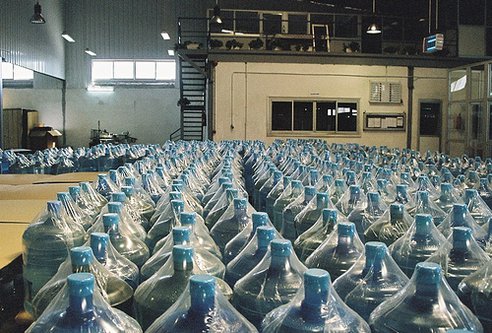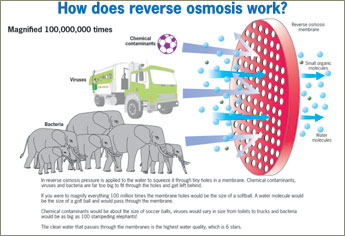Water treatment plants: The best line of defense

I spent many years as a general assignment reporter covering various municipalities and the one thing they all had in common was a top notch water treatment system. There’s been a lot of talk lately about the safety of drinking water and finding various medications and other contaminants. I’m usually the first one to bang the environmental drum and decry how government is bent on appeasing corporations at the expense of the people, but when it comes to water quality I’m actually impressed by what the government has done.
The Environmental Protection Agency and their state counter parts have very stringent regulations covering everything from radioactive materials such as radium to lead and ammonia. Raw water can come from many sources including rivers, underground aquifers, the ocean and lakes.
This raw water has everything it. Raw minerals, radioactive isotopes, heavy metals, medications and countless other contaminants including bacteria. There’s a reason why people don’t drink directly from the river in developed countries. For many cities, these regulations can be a pain in the neck because they are constantly being updated and increased by the EPA, making it difficult for cities and towns to keep up.
For example, in the late 1990s, the EPA increased the regulations on radium and many municipalities in Illinois and other states were no longer in compliance. They had two choices: Spend potentially millions of dollars on improvements or face fines and lawsuits from the EPA and then still be forced to comply.
I watched as less complex filtration systems were replaced with multimillion dollar reverse osmosis planes, green sand filtration and countless other techniques that were designed to lower the radium levels. This wasn't easy for anyone. It was going to take a decade or more to pay off the loans, citizens grumbled over increased water and sewer surcharges and the EPA just kept making things more and more stringent.
You may not realize it, but municipalities have to apply for permits every year, have to send reports to the EPA regarding bacteria, etc. and must remain in compliance with all EPA regulations or face the organization’s wrath.

It’s not always about the taste.
It doesn't matter what city you go to; their water will taste different from other cities. There’s a reason for that. Every water source has different levels of minerals and not all of them are regulated by the EPA. Reverse osmosis is one of the most effective ways of purifying water because it literally takes out almost everything. It strips the water of almost all minerals.
That’s why cities that use RO mix the treated water with water that has been stripped of contaminants, but still has mineral content. This improves the taste. Many times the taste of the water is one of the reasons people don’t drink it. They equate the taste with contamination. I refused to even cook with our water for years because it tasted salty. It wasn't until I was a reporter that I realized that the purification technique used sodium and it increased the salt levels in the water. There was nothing wrong with it other than it was a little salty.
People have grown to distrust municipal drinking water and switched to bottled water not realizing that many times the bottled water simply uses municipal water or uses the same purification techniques as the cities do. Why do you trust bottled water? It may be called something "Spring" or have Mother Nature in the title somewhere, but I can guarantee it simply came from a tap at some factory. You’re not only drinking water that is no different than what comes out of the tap, but you're creating waste by throwing away the plastic bottles.
Municipalities are under considerably more scrutiny that private businesses. The EPA takes the public water supply very seriously and there are countless laws and regulations in effect to keep it safe. The one aspect that is taking some municipalities by surprise is industrial chemicals. Filtration systems were meant to remove natural minerals and not complex chemical compounds. It’s this unnatural contamination that is causing problems.
Don’t put your faith in bottled water unless you are personally filtering it. I advocate having your water tested every year just to be on the safe side. Water contamination is serious, but people shouldn't vilify the municipalities. It’s the fracking companies and industry that are causing the problem.
Main photo courtesy off treehugger.com
Inset photo courtesy of progressivewater.com
0 comments